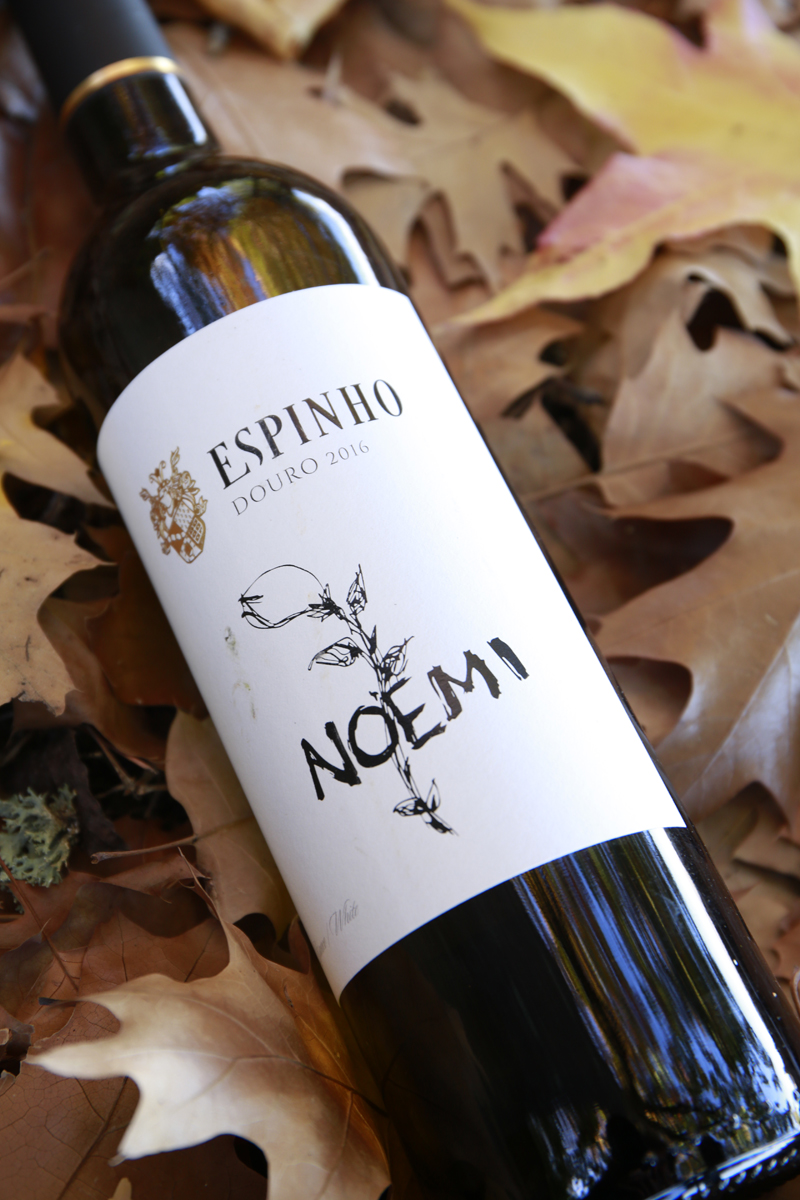We named our white wine “NOEMI” when we made the decision to produce it.
It was a tribute – a beautiful way to remember someone. Moreover, it served as a beacon of hope for the future.
It had to be a unique, authentic, high-quality, and incredibly delicious product.
Like a woman in a man’s world, the solution had to be a white wine in a world of reds.
This white wine is a winner!
BUT, WHY “NOEMI”?
Here is a summary of Noemi’s history:
“So, you want to be a winemaker? I give up the idea, my dear, that is a man’s world…”
That advice came from a native of Douro, who was close to the family.
The winemaker is now a successful executive woman in the USA.
After this introduction, two generations before, NOEMI was born in Lisbon.
She was the grandaunt of the enologist-to-be “dreamer”.
For political republican reasons, the family had moved to Lisbon, because Noemi’s father, Victor Macedo Pinto, was the President of the Parliament during the 1st Republic.
Noemi was the fifth child in a six children’s family, a family where beauty prevailed.
When Noemi was a child she lived in Porto (Foz), also in Tabuaço.
Some generations ago, The Macedo Pinto family, for 250 years, had been planting vineyards along Távora Valley and part of Douro Valley. The: Quinta do Hospital, Monte Redondo, Rio Bom, Fornelo, Carvalhas, Espinho, Fontão and Filoco, all belonged to the Macedo Pinto family. From all those “Quintas”, financial resources came to build the “Agriculture school, the Botanic garden and many other projects.
The family lived in a beautiful Manor House in Tabuaço.
It was a republican cultivated family with intellectual motivations.
All the sons had gone to College and the daughters had attended good schools or had had foreign private teachers.
It was a sensible and responsible way to fight isolation when one had to take a day journey from Porto to Tabuaço, beginning by train and ending by horse.
In that Man’s world, Noemi soon realized the difference between land appeal and the city’s magic.
Noemi lived an intense, fascinating life.
She was beautiful and intelligent, cultivated and sensitive, ironic and unpredictable, always a surprise. She was generous and charming.
She lived the passionate 20th-century events very intensely, namely: The advent of the 1st Republic, the soviet revolution, the Fátima miracle, the immobility of the “Estado Novo”, the genocide of the Spanish Civil War, the hecatomb of World War II, the tragic colonial war, he 25th April revolution and the hope for a better change.
And also the fascinating post-war renewal, freedom, democracy, Women’s Lib, all the changes in the 50s, 60s, 70s…
From her marriage with an aristocrat of Marco de Canaveses, she had two sons.
She could then realize what feudalism was and very closely experienced how the discrete charm of aristocratic, conservative society functioned.
She became a widow five years later.
What could a young widow with two little children do?
She made up her mind: she left the children with their grandparents, moved to Lisbon and tried to get a job there.
“Going to Lisbon?!… on her own…? I am leaving the children with the grandparents…?!” (many comments…).
She left her house in Nevogilde, to where she had moved little time before becoming a widow and moved to Lisbon, where she got a job. She then visited her children regularly.
Six years later she married the doctor who had been operating one of her sons. From this second marriage, she got a son and a daughter.
She then settles in Lisbon with her four children. It was a new family, a new life.
Having married a famous surgeon, a humanist, also an aristocrat, but a progressist related to the finest intellectual society, Noemi had the chance to enrich her intellectual background by making acquaintance with interesting and famous artists, namely musicians, painters, sculptors, writers… and became convivial among them, often entertaining and having them as guests.
“We went to concerts together, we used to write letters to each other, we were close friends, deep feelings of affection with little words spoken….
It was through Noemi that I learned about Vieira da Silva’s paintings, that I heard about Nietzsche, that I began to enjoy a symphony by Beethoven, a Lied by Schubert and to feel the emotion of Pessoa’s poems… ”
Noemi was always very worried about and attentive to social problems, and injustice.
Unfortunately, she suffered from a terrible neurologic pathology. She adored her granddaughter.
It was her granddaughter Patricia the last person to whom she spoke when she “left” on that fatidic night of 24th December 1989.
“Some of these episodes were experienced by myself and shared. Others were learned and were very pedagogical. I keep them all, as a mental capital of ethics, values and principles I have tried to respect, follow and pass on”.
I am Joaquim, Noemi’s eldest son.



